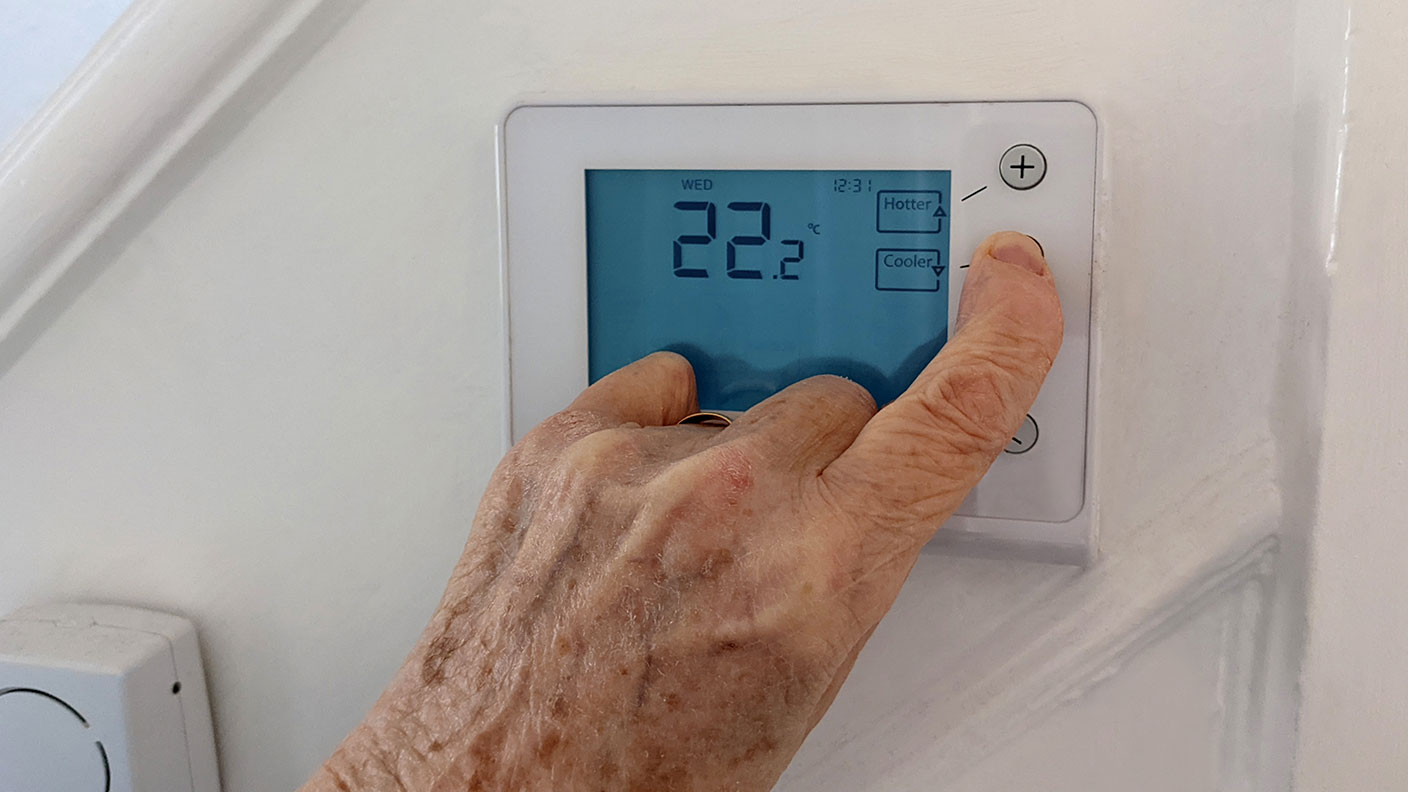When should I put my heating on? Is there a ‘best’ time?
As energy prices stay high and temperatures lower, you might wonder when should I put my heating on?


Get the latest financial news, insights and expert analysis from our award-winning MoneyWeek team, to help you understand what really matters when it comes to your finances.
You are now subscribed
Your newsletter sign-up was successful
Want to add more newsletters?

Twice daily
MoneyWeek
Get the latest financial news, insights and expert analysis from our award-winning MoneyWeek team, to help you understand what really matters when it comes to your finances.

Four times a week
Look After My Bills
Sign up to our free money-saving newsletter, filled with the latest news and expert advice to help you find the best tips and deals for managing your bills. Start saving today!
As we head into winter with energy prices still high, you may be asking – when should I put my heating on?
Under the latest energy price cap, set at £1,717 for average use (your actual bill is determined by how much energy you use), households are paying around 10% more compared to the last quarter, from 1 October to 31 December 2024. Remember, average use does not mean that you will necessarily be paying more on your energy bill. The cap refers to the unit price, not your total bill. How much you pay will depend on your energy usage.
While energy prices could go down in 2025, it’s always worth looking at how you can save on energy costs and understanding the best way to heat your home is a good way to help reduce costs.
MoneyWeek
Subscribe to MoneyWeek today and get your first six magazine issues absolutely FREE

Sign up to Money Morning
Don't miss the latest investment and personal finances news, market analysis, plus money-saving tips with our free twice-daily newsletter
Don't miss the latest investment and personal finances news, market analysis, plus money-saving tips with our free twice-daily newsletter
“When should I put my heating on?”
Most of us want to wait as long as possible before pumping up that thermostat and when you switch on your central heating will depend on the weather and, of course, how much you feel the cold. But Ryan Collier, a heating engineer and director of Heat Pump Source, says most people should think about turning their heating on when the average outside temperature starts to fall below 15ºC – this is typically in late September or early October.
Should you leave your heating on low all day?
According to the Energy Saving Trust, despite what you might think, it is usually not cheaper to leave the heating on low all day.
Leaving your heating on low all day generally uses more energy as your home loses a certain amount of heat throughout the day – just how much is lost depends on how well-insulated your how is. If you have good insulation, there’s an argument for leaving the heating on low all day – but just be sure it’s not escaping from windows. The best thing to do here is to test it out – if you can remain at a comfortable temperature all day without the heating going on and off all day, then it may well be the right move for you. Keep your heating on low for a full week and then, in the second week, schedule the heating to come on twice a day. Keep tabs on the difference in your energy usage by using a smart meter, if you have one, or by checking your meter reading.
The Energy Saving Trust stresses that, in the long run, only putting the heating on when you need it is usually the best way to keep energy costs low.
What time of day should you put your heating on?
Temperatures are lower first thing in the morning and once the sun goes down; this is when you are most likely to want the heating on. Scheduling heating to come on just before you get in from a day out or from the office can be helpful.
“Turning your heating off at night, or when you are not at home, will help to save energy and lower your bills,” says Collier.
Working from home? Then think about just heating a single room where you work. That way you won’t be spending money heating empty rooms.
What temperature should a room be?
We all have different comfort levels, but the Energy Saving Trust suggests that a temperature of 18-21ºC during winter is comfortable for most people. For elderly people Age UK recommends 21°C, while the Lullaby Trust advises around 16 to 20°C for newborn babies.
It’s also worth noting that simply turning your thermostat down by 1°C can save you around £145 a year, according to Uswitch.
What is the most cost-efficient way to heat a room?
If your home is properly insulated, then it will keep the warmth in, meaning you can lower your heating. Worried about heat escaping? Try draught excluders for windows and doors.
If you live alone or are the only one at home, it could be cheaper to use a fan heater or oil heater for a short burst of heat. Also, keep an eye on health of your boiler. As your boiler ages, it becomes less efficient and it will need to be on longer to heat your home. Make sure you get it serviced regularly to ensure it is working at an optimum level.
Related content
Get the latest financial news, insights and expert analysis from our award-winning MoneyWeek team, to help you understand what really matters when it comes to your finances.
Vaishali has a background in personal finance and a passion for helping people manage their finances. As a former staff writer for MoneyWeek, Vaishali covered the latest news, trends and insights on property, savings and ISAs.
She also has bylines for the U.S. personal finance site Kiplinger.com and Ideal Home, GoodTo, inews, The Week and the Leicester Mercury.
-
 Should you buy an active ETF?
Should you buy an active ETF?ETFs are often mischaracterised as passive products, but they can be a convenient way to add active management to your portfolio
-
 Power up your pension before 5 April – easy ways to save before the tax year end
Power up your pension before 5 April – easy ways to save before the tax year endWith the end of the tax year looming, pension savers currently have a window to review and maximise what’s going into their retirement funds – we look at how
-
 Act now to bag NatWest-owned Ulster Bank's 5.2% easy access savings account
Act now to bag NatWest-owned Ulster Bank's 5.2% easy access savings accountUlster Bank is offering savers the chance to earn 5.2% on their cash savings, but you need to act fast as easy access rates are falling. We have all the details
-
 Moneybox raises market-leading cash ISA to 5%
Moneybox raises market-leading cash ISA to 5%Savings and investing app MoneyBox has boosted the rate on its cash ISA again, hiking it from 4.75% to 5% making it one of top rates. We have all the details.
-
 October NS&I Premium Bonds winners - check now to see what you won
October NS&I Premium Bonds winners - check now to see what you wonNS&I Premium Bonds holders can check now to see if they have won a prize this month. We explain how to check your premium bonds
-
 The best packaged bank accounts
The best packaged bank accountsAdvice Packaged bank accounts can offer great value with useful additional perks – but get it wrong and you could be out of pocket
-
 Bank of Baroda closes doors to UK retail banking
Bank of Baroda closes doors to UK retail bankingAfter almost 70 years of operating in the UK, one of India’s largest bank is shutting up shop in the UK retail banking market. We explain everything you need to know if you have savings or a current account with Bank of Baroda
-
 How to earn cashback on spending
How to earn cashback on spendingFrom credit cards and current accounts to cashback websites, there are plenty of ways to earn cashback on the money you spend
-
 John Lewis mulls buy now, pay later scheme
John Lewis mulls buy now, pay later schemeThe CEO of John Lewis has said the retailer will consider introducing buy now, pay later initiatives for lower-priced items.
-
 State pension triple lock at risk as cost balloons
State pension triple lock at risk as cost balloonsThe cost of the state pension triple lock could be far higher than expected due to record wage growth. Will the government keep the policy in place in 2024?
